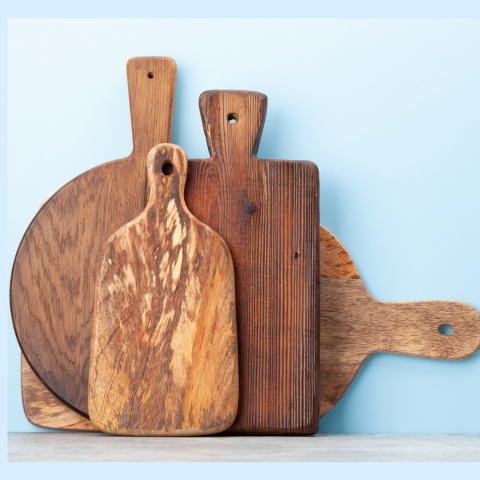When to Replace Your Cutting Boards for Safe Cooking
Keeping your cutting boards clean and in good condition is essential for food safety. Over time, boards can develop deep grooves, cracks, or warping that harbor bacteria and increase the risk of foodborne illness. While there isn’t a specific timeline from university extension services for replacing cutting boards, following these best practices can help ensure a safe kitchen.
Clean and Sanitize Regularly
Cutting boards should be washed thoroughly after each use with hot, soapy water and a sanitizing solution. This is especially important when handling raw meat, poultry, or fish. Regular cleaning helps remove food residues and prevent bacterial growth.
Inspect for Wear and Damage
Check cutting boards frequently for deep scratches, cracks, or warping. These imperfections can trap bacteria and make boards harder to clean. Once a board becomes excessively worn or damaged, it’s time to replace it.
Consider Your Cutting Board Material
Plastic boards are generally easier to sanitize and wear can be more visible, making it easier to know when replacement is needed. Wooden boards are durable and can be maintained with regular oiling, but deeply scored or cracked boards should also be replaced.
Avoid Glass Cutting Boards
While glass boards may look sleek and are easy to clean, they are not recommended for cutting. Knives dull quickly on glass, and the hard surface can cause slips and accidents. Additionally, because the surface is so hard and slick, juices from raw foods can pool and spread, increasing the risk of cross-contamination.
Tips for Maintaining Your Boards
-Inspect cutting boards routinely for wear and damage.
-Replace boards when they are cracked, deeply grooved, or difficult to clean.
-Follow manufacturer guidelines for cleaning and maintaining boards to extend their life.
For more information on food safety practices and kitchen equipment maintenance, contact the Union County Extension Office, Family and Consumer Science Agent, Abigail Thomas, at 865-992-8038 or athom237@utk.ed.
- Log in to post comments
